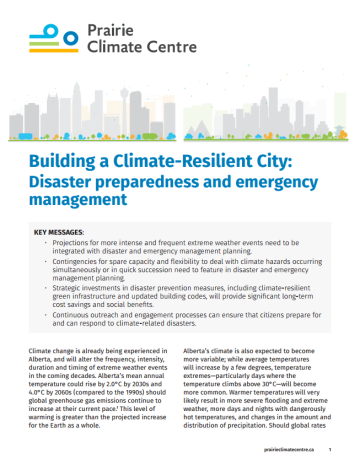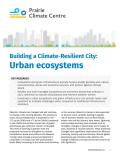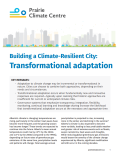
Climate change is already being experienced in Alberta, and will alter the frequency, intensity, duration and timing of extreme weather events in the coming decades. Alberta’s mean annual temperature could rise by 2.0°C by 2030s and 4.0°C by 2060s (compared to the 1990s) should global greenhouse gas emissions continue to increase at their current pace. This level of warming is greater than the projected increase for the Earth as a whole.
Alberta’s climate is also expected to become more variable; while average temperatures will increase by a few degrees, temperature extremes — particularly days where the temperature climbs above 30°C — will become more common. Warmer temperatures will very likely result in more severe flooding and extreme weather, more days and nights with dangerously hot temperatures, and changes in the amount and distribution of precipitation. Should global rates of greenhouse gas emissions decline, the change in Alberta’s climate will be less severe, but still pose a risk of more extreme weather events.




